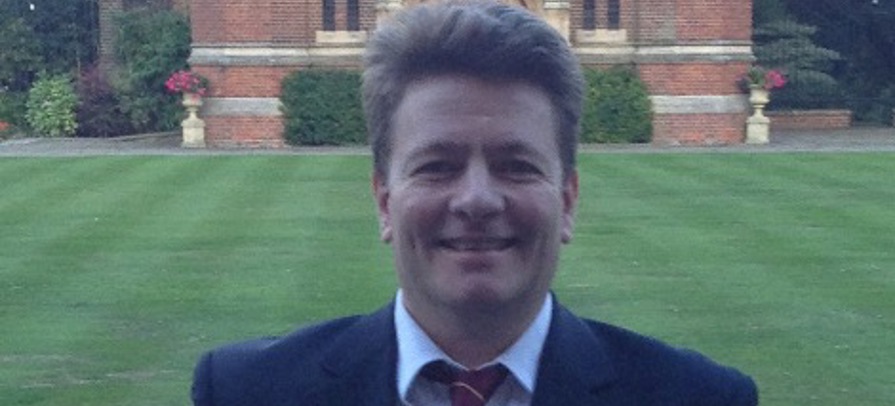Jens Christian S. Justinussen lokið ph.d. á University of Cambridge
Jens Christian Svabo Justinussen hevur lokið ph.d. prógv við samfelagsfrøðideildina (Faculty of Human, Social, and Political Science) á University of Cambridge í Onglandi. Ritgerðin kallast: "Sustainable Management - a Question of Time". Vegleiðari hevur verið Dr Patrick Baert, professari.
Opponentarnir vóru Peter Dickens. d.phil., atknýttur granskari at samfelagsfrøðideildini á University of Cambridge og Jesper Raakjær, ph.d., professari á deildini fyri planlegging, Innovative Fisheries Management (IFM), Aalborg Universitet.
Ritgerðin varð vard í oktober 2013. Verjan gekk væl, men eins og tað ofta hendir í Stóra Bretlandi, so mæltu opponentarnir til, at broytingar vóru gjørdar í ritgerðini, áðrenn ph.d. heitið formliga varð latið.
Hesar broytingar eru nú gjørdar og endaliga góðkendar við heilsan frá opponentunum, sum ynsktu til lukku við einum framúrskarandi arbeiði.
Í ritgerðini hevur Jens Christian Svabo Justinussen viðgjørt spurdómin, hví tað verður ovurfiska. Hvussu kann ein forklára, at annars rationellir aktørar støðugt yvirfiska fiskastovnarnar? Í ritgerðini leggur Jens Christian upp til, at spurningurin er globalur, tí yvirfiskarí finnast stórt sæð allastaðni í heiminum, og enn hevur eingin funnið eina varandi loysn uppá hendan spurningin.
Ritgerðin tekur støði í føroyskari fiskivinnuumsiting og setur spurningin, hvussu ein kann forklára yvirfiskarí í Føroyum. Jens Christian vísir á, at tær mest nýttu teoriirnar, sum verða nýttar til at forklára yvirfiskarí (sosialar tvístøður og institutionellar loysnir uppá sosialar tvístøður) ikki rættuliga megna at forklára yvirfiskarí í Føroyum. Í staðin fyri, heldur Jens Christian, at ein kann forklára tað út frá einum tíðarsýini.
Í ritgerðini verður komið fram til at, “The overarching picture that emerges from the case study is this: fishermen were not racing against each other for the fish, which might be explained as an unresolved social dilemma, but instead they were collectively racing against time, which is better accounted for by the factors of institutional time horizon and time preference. “
Ein longri samandráttur á enskum er niðanfyri .
Jens Christian Svabo Justinussen starvast sum adjunktur og undirvísingarleiðari á Søgu- og samfelagsdeildini á Fróðskaparsetri Føroya.
Verkætlanin hevur verið stuðlað úr Granskingargrunninum, Grunninum fyri Førleikamenning (Chevron, Atlantic Petroleum, og Eni), og Fiskivinnugransking.
Væntandi verður ritgerðin givin út í bók í næstum.
Le um JensChristian Svabo Justinussen í Heilagrunninum
Summary:
Overfishing and the resulting depletion of the world’s fish stocks pose major risks.
Not only can depletion trigger ecological disaster, reducing the fecundity and biodiversity of the world’s wildlife, but it can also undermine human food security and thereby contribute to widespread instability. Sustainable management of the world’s fisheries is an attempt to avoid these crises. However, various attempts to create and implement sustainable fishery practices have failed. Overfishing continues to such a degree that some scientists warn that within 50 years there may be hardly any fish left in the oceans. With the alarm bells ringing so loudly, why does overfishing continue to happen, and how come this well‐known problem is still not solved? In this thesis the overfishing problem is revisited and a new temporal approach to the overfishing problem is developed to better understand and explain this persistent predicament. It shows that overfishing should be reconceptualised as a temporal problem and, in particular, as an expression of a high time preference leading to overfishing. Time preference is understood as a temporal bias leading to a preference for present utility versus delayed utility. Therefore, while resolving and mitigating the social dilemma is a necessary condition to end overfishing, it is not a sufficient condition. It is argued that another factor leading to time preference is the institutional time horizon. The concept ‘institutional time horizon’ is influenced by John R. Searle’s understanding of institutions as collectively assigned status functions that come with deontic powers – that is obligations, rights, duties, and commitments – giving rise to desire‐independent reasons for actions. Applied to the temporality of actors’ behaviour it means that, at certain points in time, actors have certain commitments and certain results have to be achieved. Thus commitments, obligations, duties and rights are temporalised. From this temporalisation of the society, we get the institutional time horizon. The actor now has an obligation to do certain things, take certain measures and/or is committed to achieve results before the end of the given term. This creates an institutional time horizon where everything within the horizon has overwhelming importance compared to anything beyond the time horizon, thus giving rise to the time preference. The research is based on a detailed case study of fishery management in the Faroe Islands, using participatory observation, document analysis and qualitative interview as key methodical tools. The overarching picture that emerges from the case study is this: fishermen were not racing against each other for the fish, which might be explained as an unresolved social dilemma, but instead they were collectively racing against time, which is better accounted for by the factors of institutional time horizon and time preference.
Keywords: Overfishing, Sustainable Management, Faroe Islands, Social Dilemmas, Time Preference, Time horizons, Temporalisation of Society, Institutions, Risk, Political Sociology, Environmental Sociology, Decision‐making, Case Study.
